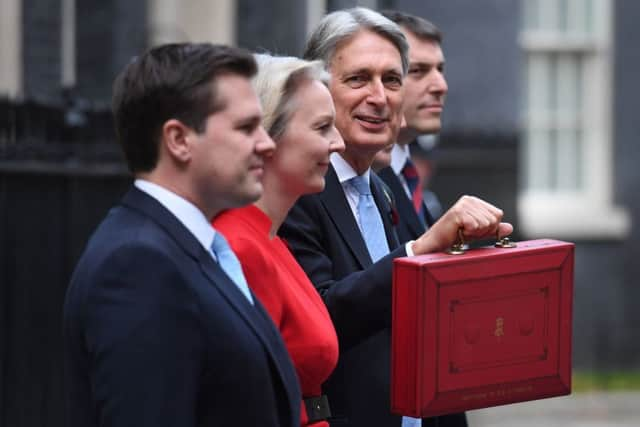Jayne Dowle: Forget patronising '˜little extras' '“ our Chancellor needs a lesson in funding schools


His Budget reeked of privilege. And that’s a dangerous position. It showed no understanding of the challenges which other people’s sons and daughters face, nor did it address the concerns of those who teach and guide them.
Every politician should know that top of the list for the nation’s general well-being is good education. However, if Mr Hammond’s Budget promise of what equates to around 50p a week per child to cover what he patronisingly calls ‘little extras’ is anything to go by, he has no comprehension at all.
Advertisement
Hide AdAdvertisement
Hide AdWhen pressed to explain what he meant, he mumbled something about laptops and whiteboards. It sounded like some aide had hastily googled ‘what do children use in classrooms?’ and whispered a few words in his ear.


He’s a clever man, but clearly has no idea what he is talking about. The provision of efficient teaching materials for every school shouldn’t be reliant on the whim of a government appeasing a nation anxious about impending Brexit. It should be an absolute given.
By no means should the correct technical kit be considered ‘little extras’. I’d like to sit Mr Hammond down and ask him to describe exactly how he imagines state education functions and is funded. And then spell out to him exactly where he needs to put his priorities next time.
Advertisement
Hide AdAdvertisement
Hide AdTop of the list is the recruitment and retention of teachers. For instance, there are severe shortages of science and maths specialists at secondary level. We’re always been told that STEM (science, technology, engineering and maths) subjects should be prioritised.


However, this is not borne out in the classroom; and it means that thousands of young people are being short-changed and failing to develop their potential. I’ll bang a drum here for our region. With its proud reputation for manufacturing and engineering, we need to invest in the future. Well-educated young people are the key.
Also, there are not enough qualified staff to support those from foundation to further education who have special needs or learning difficulties. This leads to disaffection and impacts directly on the worrying and growing number of youngsters permanently excluded from full-time education.
Advertisement
Hide AdAdvertisement
Hide AdAnd I didn’t hear anything specific about addressing over-subscribed, over-crowded and crumbling schools. Almost half of teachers report that numbers of pupils on the roll at their school had significantly increased in the past five years, according to a survey conducted by teaching union NASUWT this summer.
Seven out of 10 said that class sizes had become larger as a result – and one in five said that the only way to cope was to teach in temporary classrooms or carve out space in areas previously used for other purposes, such as exercise or eating.
We like our children to learn joined-up writing, but it’s about time our politicians learned to do joined-up thinking. You can’t ignore a population bulge or allow much-needed new houses to be built without paying heed to the supporting infrastructure.
And then there’s that letter which arrived at our house demanding £5 for paint and brushes for my daughter’s Year 8 art lessons. I’m not paying it on principle, because I wish to make a stand that it is unfair to put the burden of funding basic supplies onto parents.
Advertisement
Hide AdAdvertisement
Hide AdI could probably just about scrape together a fiver, but many parents simply won’t be able to afford it on demand. And why should they? This is not some fancy trip to New York or an outlandish after-school activity, but a basic lesson which is not being funded efficiently. There is probably something to say here about the lack of priority given to arts subjects in schools these days too.
However, I know plenty of teachers who end up spending their own wages on basics such as pens, pencils and rulers because the school cupboard is bare. I’ve even heard of schools running crowd-funding campaigns to pay for tables and chairs.
At first sight, the total Budget sum promised, an additional £400m in the education pot, looks quite generous. However, this is before you set it against the current funding shortfall in our schools, which is widely-held to be somewhere in the region of £2bn per year. The Institute for Fiscal Studies says that spending per pupil in England has fallen by eight per cent since 2010, when David Cameron became Prime Minister. Even a child with the most basic grasp of maths can work out that you can’t do more with less. New laptops and whiteboards? These would be lovely thank you, but they are no good whatsoever if there are not enough classrooms to put them in or teachers to use them.